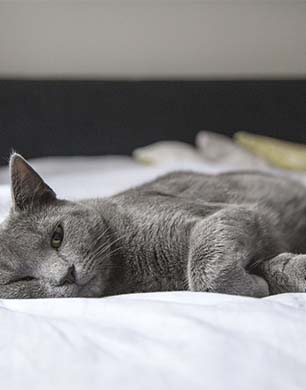
Photo Credit: Pixabay
If you got your cat when they were a kitten, you’ll recall having to consider certain things surrounding training, food, health, and access to resources. Now as your cat has grown older, there are once again certain aspects of life they will need extra support with.
As humans do as we age, cats become less agile and less mobile, meaning they find it harder to reach things or walk short distances. It’s likely their health will also begin to suffer, and they will be more prone to illness and serious disease. However, with the right care and plenty of love, you can help your cat live a comfortable life until their time comes.
Here, we explore how to take care of your cat as they age.
Adjust their home environment
You may need to take some steps to make your home environment more comfortable for your senior cat. Consider where the cat food, water, litter boxes and other resources are located. If your home has multiple floors, ensure these are available on each floor, so they’re easily accessible to your cat. As cats age they tend to get cold easily, so provide extra bedding to keep them comfortable and warm.
Stay on top of grooming
Older cats often need help to keep their fur groomed. Use a cat brush or comb regularly to remove tangles and prevent matting. Remember to pay close attention to your cat’s nails, particularly if they suffer from arthritis, as this often causes the nails to start growing into the paw pad which is extremely painful. Clip your cat’s nails regularly and never let them become overgrown.
Be aware of health issues
As with humans, cats are more prone to illness as they get older. Arthritis is common in senior cats and can lead to pain which can affect their quality of life. The best prevention method for arthritis is to make sure your cat maintains a healthy weight, as just one extra pound can have a significant impact.
Kidney disease and constipation are also common in older cats, so it’s crucial to ensure your feline has access to water all the time to prevent these issues. Remember water bowls on countertops may be harder for an elderly cat to reach, particularly if they struggle to jump, so set up a few water stations on the floor for easy access.
Pay attention to their behaviour
As your cat grows older, they may become less active and sleep for longer. They may also become more insecure, making them more dependent on you. Pay attention to your cat’s behaviour and temperament as they age. Some changes in behaviour such as increased thirst or aggression may indicate a sign of illness. Sudden aggression could be a result of pain, so it’s best to get your cat checked by a vet.

